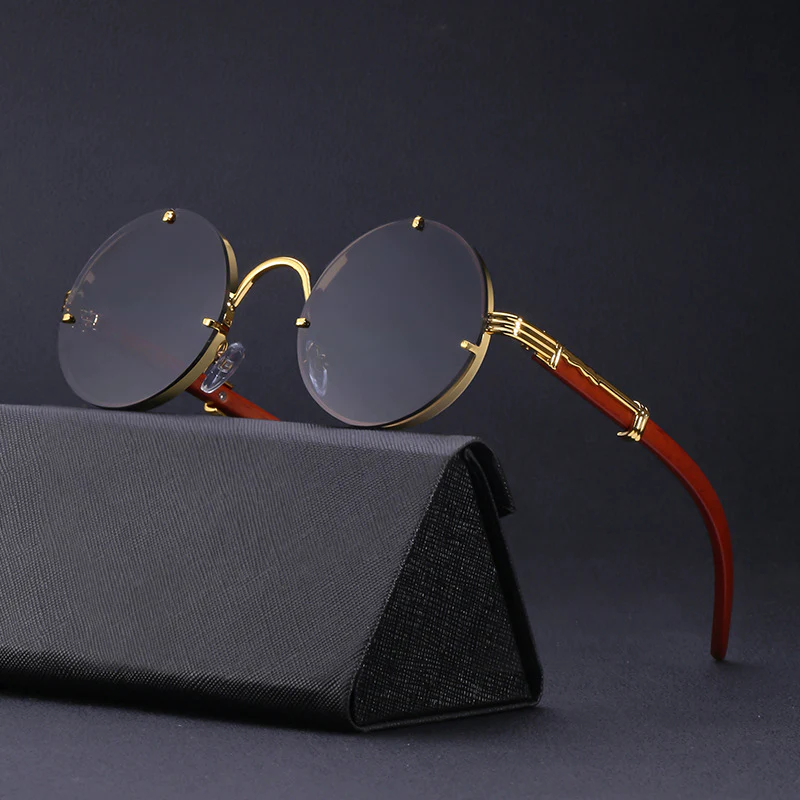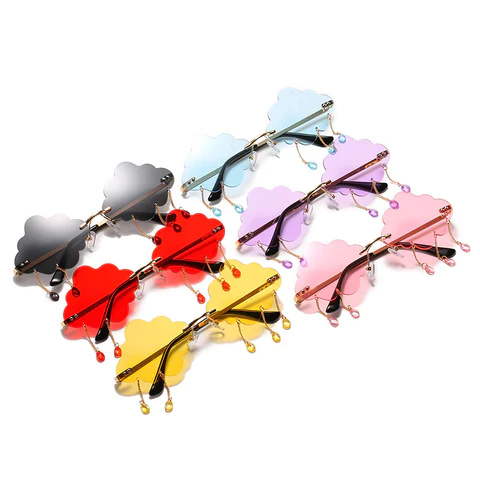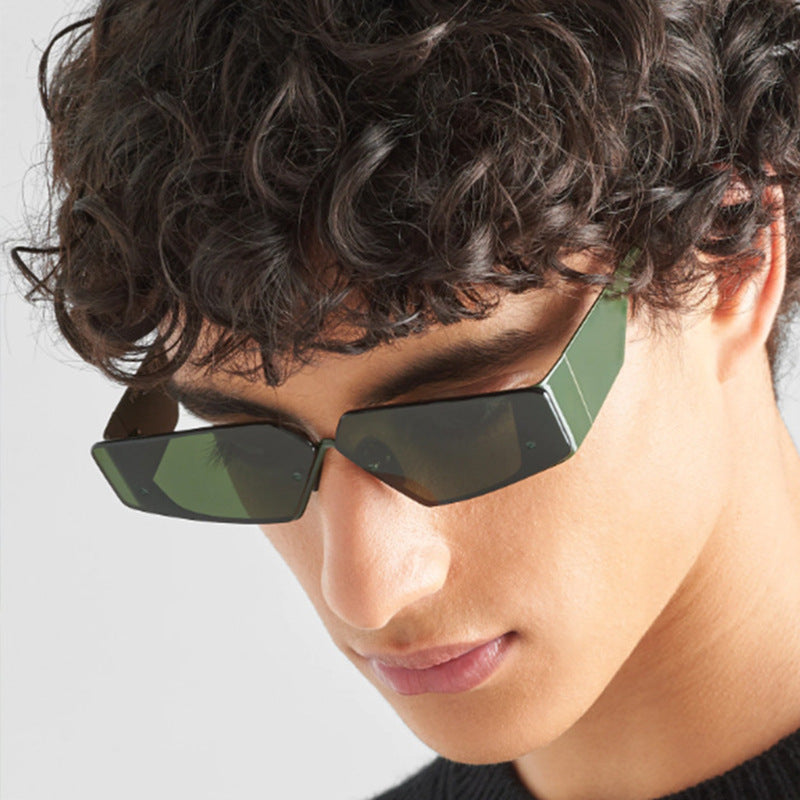Eyewear has long been an indispensable fashion item on the runway.Similar to fashion, the popularity of sunglasses is cyclical. Throughout the 20th century, people were mainly improving and refining the design of their eyewear. Every 10 years an iconic style would emerge. Tortoiseshell eyeglasses became popular on college campuses in the 1940s and remained popular through the 1950s at Ivy League schools. These glasses were always round or oval, as opposed to the black, thick-rimmed frames of the Madison Avenue advertising moguls (like Woody Allen today), which were rectangular.

Another group of hipsters favors small, rounded frames, which are more suited to those understated, period styles such as: vintage, classic, and of course, collegiate. Interestingly, these relatively vintage styles can be paired with the least vintage eyewear.
Designers began to add angles to their glasses in order to flatter facial lines, which led to the rise of hexagonal or irregular polygonal sunglasses. From the Harajuku style with clear rims, to the steampunk with black rims, to the Y2K style with no rims, the power of this accessory to shape the image of the face is not to be underestimated, as it is the accessory with the largest share of the face.

In the opinion of trend forecaster WGSN, the 2024 eyewear trends still have cat-eye style glasses, rectangular glasses and aviators on the list.
One of the longest-running icons is the cat eye glasses. With its debut in the 1950s and 1960s, this design with its slightly raised rims created a style of women's eyewear that was both playful and feminine. Whenever the classic is revived, it is always accompanied by a few changes in detail, sometimes the rims are narrower, sometimes they are smaller, and sometimes the flared rims are tucked in or hidden. Netflix models tend to favor a variant of the cat-eye that combines the latter two elements, narrowing the sunglasses just enough to completely cover the edges of the eyes, just to add an accessory to the face.

Unlike the case of sunglasses, there are two schools of thought when it comes to people's views on the decorative nature of eyeglasses. One school of thought is to stick to one style and the other is just the opposite. While the downside of wearing only one style of eyewear is that it is uninteresting and predictable, for those who make it a personal characteristic or a sign, the obvious advantage of a uniform style is that it helps to create an image of stability, reliability, and indifference to fashions: like the 18th-century phrase "a man with a solid foundation", the kind of man you would want to invest in. The kind of person in whom you would invest.
Accordingly, many people choose to wear different styles of eyewear for different moods and occasions. Choosing the right eyewear for the right occasion, purpose and audience will better convey the message you want to convey.
Eyewear can be styled in many different ways to allow the outside world to better pick up on the visual message you're trying to send: playful, wise, serious, creative, educated, or even rebellious. If necessary, you can also take off your glasses and play with them in your hand, making a contemplative gesture, which helps to buy some thinking time when you can't figure out what's going on. All of this makes you wonder how these very different styles can go hand in hand.
After years of heavy acetate or resin frames gallivanting around, trend setters are hitting on metal frames again, and the gilded kind at that. In fact, gilded frames have always been classy - the Beatles took America by storm in 1964, setting off a wave of Britishness wherever they went. But urban hipsters and hippies like John Lennon and Janis Joplin preferred to wear vintage thin filigree rimmed glasses with small oval tinted lenses, the kind grandmothers wore.

In recent years, gold glasses began to shine in the fashion circle, retro and literary temperament makes it increasingly become the heart of the fashionistas. The return of the gold wire rimmed glasses frame is more slender and lighter, round frame gold wire glasses with smooth lines, the visual center of gravity in the face, to strengthen the sense of presence of the five senses; in contrast, the square frame glasses are more stable, but also for the face to add more angularity, slightly tighten the lower edge of the rim at the same time to modify the shape of the face. Regardless of that style has one thing in common, and that is just the right amount of seriousness.



